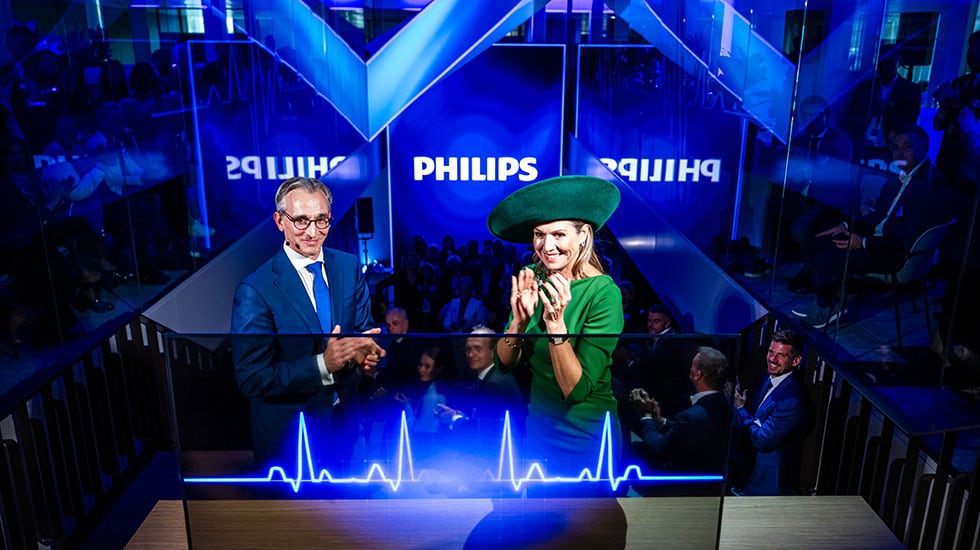Her Majesty Queen Máxima of the Netherlands today officially opened the new global headquarters of Royal Philips (NYSE: PHG, AEX: PHIA). The ceremony, attended by healthcare changemakers and leaders, policymakers and Philips employees, marked the global ambitions of Philips as an innovation powerhouse improving health and well-being around the world.
“At Philips, our purpose is clear. We develop innovations that create better care for more people around the world,” said Roy Jakobs, CEO of Royal Philips. “Healthcare systems everywhere face growing pressure, from rising demand to workforce shortages. Our role is to help clinicians, providers, and partners deliver high-quality, more sustainable care through technology that truly makes a difference. Our new global headquarters reflects who we are and how we work: open, collaborative, and focused on impact and patient safety. It’s designed to bring people together, inspire innovation, and strengthen our global relations. From here, we continue our mission to improve lives and help shape the future of healthcare worldwide.”
Driving innovation for healthcare systems globally
At the opening, Philips showcased a range of health technology innovations that are making global impact, from imaging and image-guided therapy systems to smart monitoring and personal health solutions.
“We believe meaningful innovation happens in partnership,” added Roy Jakobs. “By working closely with hospitals, universities, and research institutes around the world, we co-develop solutions that make healthcare more resilient, efficient, and future-ready. Collaboration is at the core of how we advance care and improve outcomes for patients everywhere.”
MR technology expanding access to diagnostics
Philips’ BlueSeal MRI systems use a fully sealed helium circuit requiring just seven liters of liquid helium instead of the traditional 1,500. This breakthrough enables broader access to MR imaging. Access to MR scans is essential for the treatment of Alzheimer diseases with a new class of medicines, which require precise and frequent monitoring when used. Integrated AI-tools in the MR-scanner further assist clinicians with scan interpretation and analysis.
Image-guided therapy enabling minimally invasive procedures
The Azurion platform integrates imaging, data, and navigation technologies in one system, allowing clinicians to perform complex interventions through small incisions. Used in hospitals globally, Azurion can support minimally invasive stroke treatments, to improve outcomes for patients worldwide.


